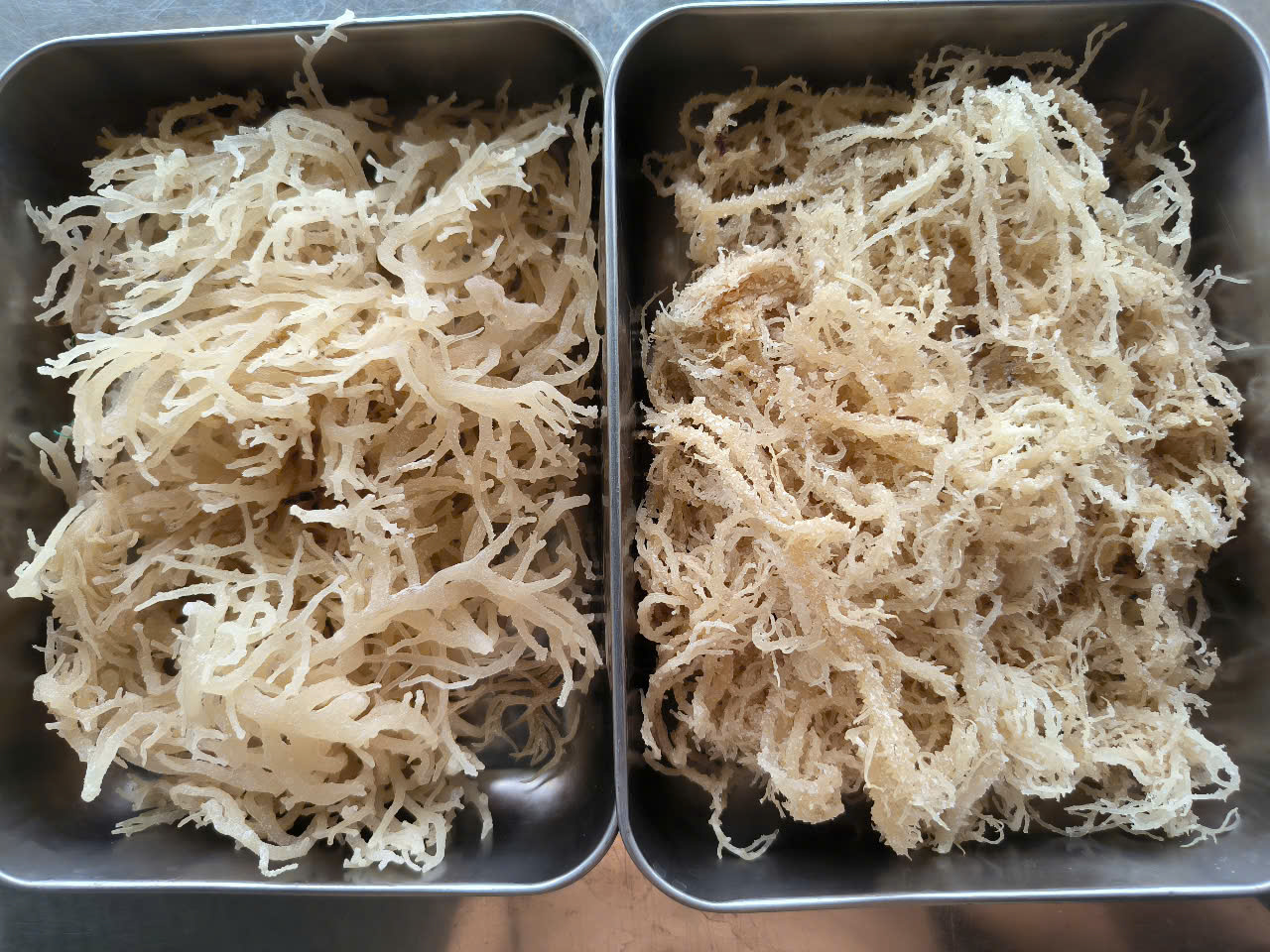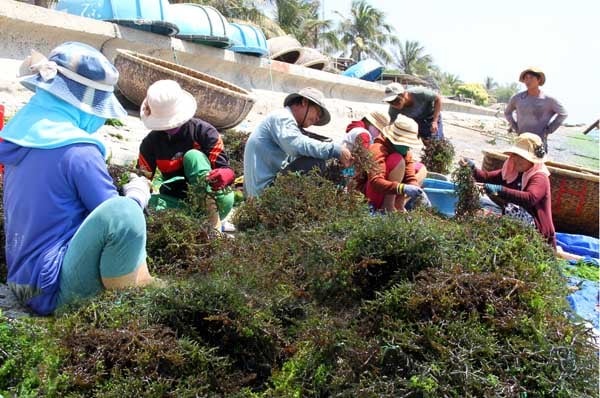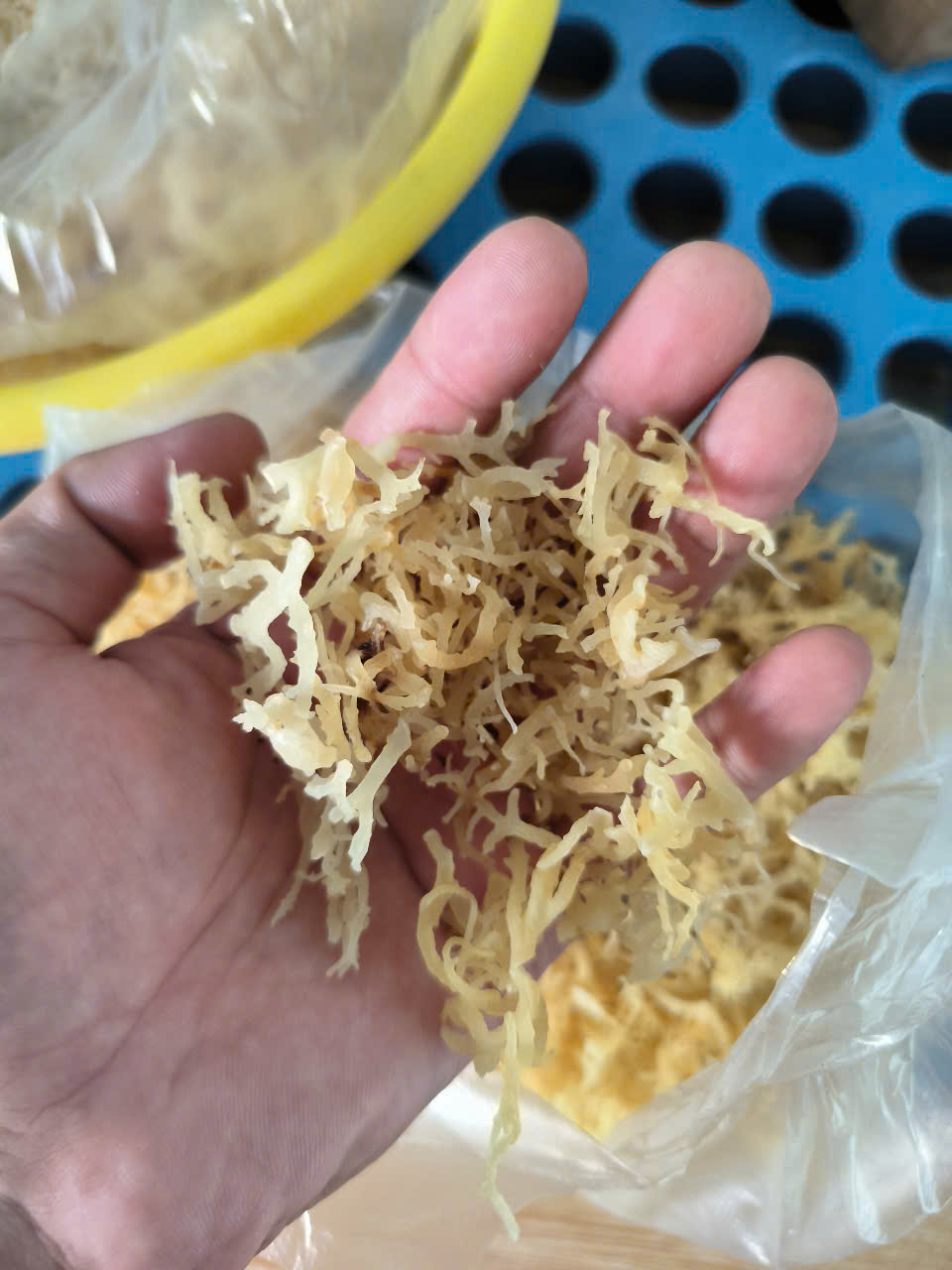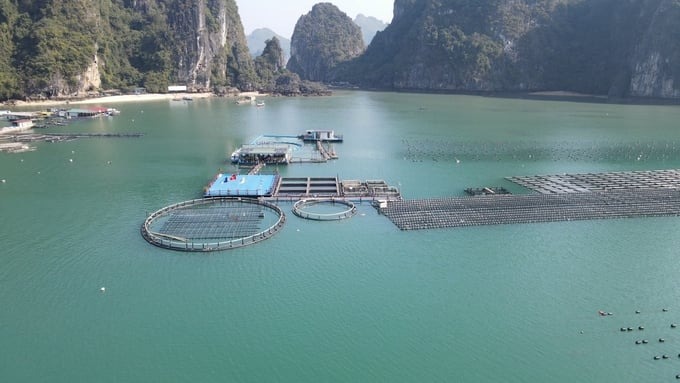The global B2B seaweed market is witnessing rapid growth, particularly in the Asia–Pacific region, which accounts for over 60% of global revenue. Leading producers include China, Indonesia, South Korea, and Vietnam - nations with rich marine biodiversity and growing industrial capacity. Among them, Vietnam holds untapped potential due to its extensive coastline, government support, and evolving processing capabilities.
Seaweed is increasingly used in diverse industries including food, pharmaceuticals, cosmetics, animal feed, and biodegradable packaging materials. The rising demand is driven by global trends toward plant-based diets, sustainable sourcing, and clean-label products.
However, industry players face ongoing challenges such as a lack of uniform quality standards, regulatory complexities in seaweed farming, and environmental sustainability concerns. In this context, partnering with certified suppliers practicing sustainable farming and export transparency is key to securing long-term growth and competitive advantage.
1. Global outlook: The rise of online B2B seaweed marketplace
In the past decade, the B2B seaweed trade has shifted online, driven by rising demand in food, pharmaceuticals, cosmetics, and sustainable packaging. As industries seek traceable, plant-based, and eco-friendly ingredients, seaweed has become a highly sought-after raw material for large-scale manufacturing.
Digital B2B platforms like Alibaba, Global Sources, TradeIndia, and niche sites such as SeaweedMarket.com are now critical hubs connecting verified suppliers with industrial buyers.
These online B2B seaweed marketplaces offer features such as:
- Supplier certifications (ISO, HACCP, GMP)
- Transparent pricing
- Regional origin labeling
- Direct messaging and order tracking
By using these platforms, buyers can streamline procurement, ensure compliance, and mitigate sourcing risks.

Actual photos of Lam Hong seaweed products.
2. Asia’s dominance in the B2B seaweed marketplace
Asia, particularly Southeast Asia, leads the B2B seaweed marketplace with countries like Indonesia, the Philippines, Vietnam, and South Korea playing key roles. Indonesia and the Philippines alone supply over 60% of the world’s raw seaweed exports. Asia’s strength lies in both biodiversity and cost-effectiveness.
In recent years, companies from Thailand, Malaysia, and Vietnam have built their presence on B2B platforms with product categories like:
- Raw dried seaweed (e.g., Kappaphycus, Gracilaria, Eucheuma)
- Seaweed powder for food and cosmetics applications
- Carrageenan and agar
- Seaweed extracts and capsule ingredients
Buyers on these platforms—ranging from private-label brands to OEM manufacturers—can:
- Request product samples
- Compare sustainability certifications
- Ensure compliance with regional trade policies.
With the market share outlined above, you have likely recognized the strengths of the seaweed supply sector in this region. However, when referring to Southeast Asia, it is also important to acknowledge certain limitations that still require improvement. This does not imply that suppliers in the region are underperforming, but rather that careful consideration and due diligence are essential when selecting the right partner.

Seaweed harvesting at Lam Hong.
Vietnam spotlight: A growing power in the B2B seaweed marketplace
Vietnam is fast becoming a strategic hub in the B2B seaweed marketplace, particularly due to:
- A long coastline with clean waters is ideal for organic seaweed farming
- Government-supported aquaculture initiatives
- A growing number of ISO-certified and HACCP-certified seaweed processing plants
Vietnamese seaweed exporters are increasingly joining online B2B seaweed marketplaces, offering:
- Carrageenan-grade seaweed from Nha Trang and Phu Yen
- Seaweed ingredients for capsule shells and skincare formulations
- Private label packaging for food or supplement brands
Additionally, Vietnam’s sea moss and red seaweed products are sought after for their stable gel strength and purity, making them ideal for both food and pharma.
Vietnam, with its clean coastal waters and affordable labor force, has long been recognized for the quality of its seaweed. This advantage is further amplified when you find a reliable partner that aligns with your business needs.

Lam Hong dried seaweed products are ISO certified.
3. How to find a seaweed supplier in Vietnam
To find a seaweed supplier in Vietnam, businesses can leverage a variety of sources and channels. The search can be conducted through B2B e-commerce platforms, company directories, search engines, social media, trade fairs and exhibitions, or by contacting relevant government agencies. Below are six practical approaches you can apply:
Utilize B2B platforms
Websites such as Alibaba, Made-in-China, or Vietnamese equivalents host numerous suppliers. You can search using keywords like "seaweed" or specific types (e.g., “nori seaweed,” “kombu seaweed”).
Explore business directories
Platforms like Yellow Pages Vietnam, Vietnam Company Directory, or other specialized listings provide contact information for manufacturers and seaweed traders.
Use Google search
Search using keywords such as “seaweed supplier,” “buy seaweed,” “fresh seaweed,” “dried seaweed,” or “seaweed production” along with specific provinces or cities to identify local sources.
Leverage social media
Facebook groups, Zalo communities, and online forums focused on food, agriculture, or seaweed can be excellent places to find potential suppliers and gather feedback.
Attend trade fairs and exhibitions
Events such as agricultural fairs, food expos, and aquaculture exhibitions often feature seaweed producers and suppliers. These events are valuable opportunities for direct engagement and in-depth product understanding.
Contact government agencies
Departments such as the Department of Agriculture and Rural Development or relevant industry associations can provide information on reputable suppliers in your region.
Important considerations when searching:
-
Clearly define your needs
Before starting your search, identify the specific type of seaweed you require, desired quantity, quality standards, and any other relevant criteria to streamline the process.
-
Verify supplier information
Always cross-check supplier details from multiple sources, including official websites, business licenses, and customer reviews.
-
Initiate direct contact
Once you have identified potential suppliers, reach out directly to discuss product specifications, pricing, terms, and requirements. Direct communication is the most effective way to assess professionalism and service quality.
-
Negotiate
Do not hesitate to negotiate prices and terms to ensure the best value for your business
- Seek expert advice
If needed, consult with industry professionals for further guidance in selecting the most suitable supplier for your needs.
4. How to register as a seller on a b2b seaweed marketplace?
If you're a supplier looking to sell seaweed products online, here's a basic process to get started:
- Choose the right platform: Examples include Alibaba, Global Sources, and niche sites like TradeSeaweed.com.
- Create a verified seller account: Upload business license, product certification (ISO, HACCP, or GMP).
- List your products: Include HS codes, specifications, images, pricing tiers, and MOQ (minimum order quantity).
- Optimize product descriptions for keywords like “certified organic red seaweed” or “food-grade sea moss.”
- Engage with buyers promptly: Many platforms rank sellers by responsiveness and reviews.
Ensure you meet export compliance, Especially if selling to the EU, US, or Japan (check traceability & sustainability standards).

Lam Hong seaweed farming area.
The future of seaweed sourcing is digital, traceable, and sustainable. As demand continues to rise, especially from clean-label brands and vegan manufacturers, being present on a reputable B2B seaweed marketplace can unlock global opportunities.
For Asian suppliers, especially in Vietnam, Indonesia, and the Philippines, this is the time to scale, certify, and connect directly with buyers seeking transparency, volume, and long-term reliability.
If you are seeking a partner from Vietnam, we invite you to contact Lam Hong for further evaluation before selecting a supplier. While we may not yet be a large-scale brand, we are confident in our ability to meet your business needs with professionalism and reliability.






